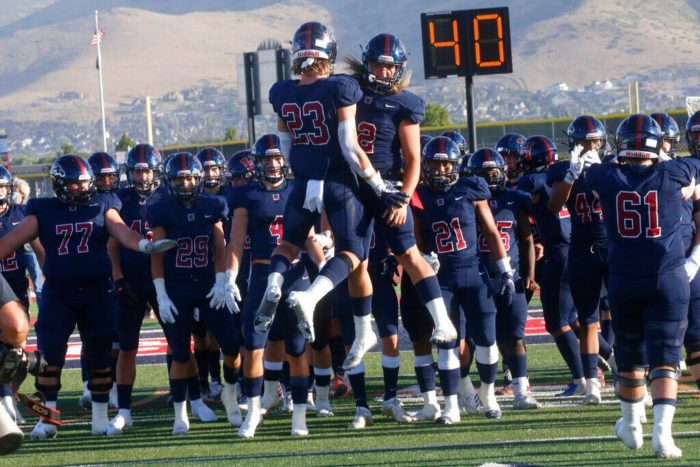Imagine you are trying out for the school varsity team. It’s the last day of tryouts, and the team rosters were just revealed. You’re on the junior varsity team. How would you feel? Most likely, you would be upset or angry. Let’s say that you asked the varsity coach what to work on to get on the team next time. However, you’re told that it’s not your capability. Instead, many 8th graders were moved up, which bumped you out of a spot. This bears the controversial question: Should eighth-graders be allowed to move up to varsity?
It has become common for eighth-graders to be able to move up to the varsity team for their school. While most see this as a sign the person moving up is a stellar, standout player, it recently has become more political. For example, there are times when people may get on just because of their connections, such as having a family member or family friend in the school district. This example of nepotism could potentially eliminate a high schooler’s eligibility for making varsity as team sizes are limited.
Eighth graders can also pose a threat to high schoolers on the varsity team regarding playing time. In accordance with the SCSD Student-Athlete Handbook, the eighth-grader that is moved up and deemed the “exceptional” athlete must be a starter or play at least 50% of the time.
While this seems great for the middle schooler who is moved up, this wouldn’t seem the same way for the upperclassmen or any previous players who consistently played during matches or games, as it now means that they may get less playing time.
The ability for a younger player to be able to move up does not only affect the other teammates, but it can affect the student-athlete themselves. For instance, in sports such as football or men’s lacrosse, the game’s physicality is very rough.
This can pose a problem for the eighth-grader, as they may not be able to handle this part of the game; this can lead to health problems or inability to keep up with the older, stronger teammates.
With all this being said, does it mean that eighth-graders should be unable to move up to the “big leagues?” Of course not. The eighth-graders who are outstanding and exceptional should move up. But it does not mean that the system should be rigged or molded to meet the demands of parents or guardians who want to put their child on the varsity team solely through nepotism.
With this problem being eminent in many varsity teams, the “honor” of being moved up as an actual superior player is cheapened. The title does not hold as much meaning if anyone can make it.
So, the next time you may hear about a middle schooler being moved up, consider that it may not be the most excellent scenario for the athlete or the team.
